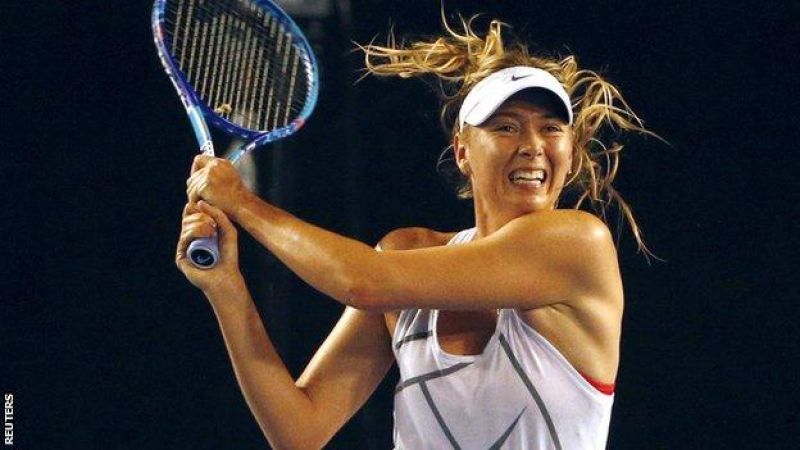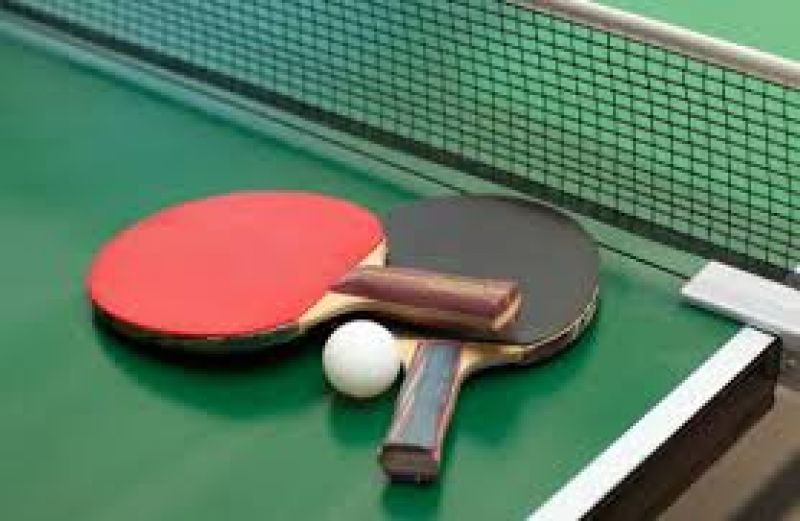By Daily Sports on October 5, 2016

Maria Sharapova had a two-year ban for testing positive for meldonium reduced to 15 months on appeal.
Meldonium was added to the banned list for 2016 but a factor in Sharapova's favour was there was no specific warning to its change in status.
The ITF believes "appropriate steps were taken to publicise any changes".
But, in a statement, it added: "Nonetheless, we have reviewed, and will continue to review, our processes for communicating changes to the prohibited list to players with the aim of ensuring that no player can claim that they had not been fully informed."
Sharapova's suspension is backdated to the date of her first positive test on 26 January 2016 and she can return to action on 26 April 2017.
"I have learned from this, and I hope the ITF has as well," she said as part of her response to her ban being reduced.
The 29-year-old tested positive for meldonium at the Australian Open in January 2016 and an out-of-competition test on 2 February.
The Russian said she had been taking meldonium since 2006 for health reasons and was unaware it had been added to World Anti-Doping Agency's (Wada) banned list as she knew it only by the name Mildronate.
However, the Court of Arbitration for Sport (Cas) appeal hearing said the Russian was at fault for not giving her agent "adequate instructions" in checking Wada's prohibited list and "failing to supervise and control" her agent.
Sharapova's lawyer, John Haggerty, called the Cas decision "a stunning repudiation of the ITF" and "it exposes the ITF decision for what it is - pure fiction".
"As we demonstrated before Cas, not only did the tennis anti-doping authorities fail to properly warn Maria, if you compare what the ITF did with how other federations warned athletes of the rule change, it's a night and day difference," he added.
The chief executive - Johan Eliasch - of one of Sharapova's sponsors, racquet manufacturer Head, said "justice had been served" and called the original ITF decision "wholly unfair".
Eliasch said "there is no doubt Maria broke a rule" but believes there are inconsistencies in the anti-doping regime and says changes are needed.
"This calls into question the revelations about certain Olympic athletes who were granted therapeutic use exemptions (TUEs) for substances that could most certainly be considered performance enhancing and have been proven to be performance enhancing under significant clinical testing," added Eliasch.
"Meldonium, the substance that Maria had been taking, has yet to be proven under any significant clinical testing to have any performance enhancing benefits."
Eliasch called for "a wholesale comprehensive review and change to the anti-doping system in identifying performance enhancing drugs".
Former Wimbledon champion Virginia Wade believes it was "inexcusable" for Sharapova to find herself in this situation.
However, speaking to BBC Radio 5 live, Wade added: "She's 100% right. The ITF should be more clear.
"The players need to be much more attentive and you have got to realise that, even if you are trying everything to make yourself feel better, do better, be stronger, that it has to be within the rules."
Pat Cash, the 1987 Wimbledon men's champion, thought the 15-month ban was "just a little bit on the lenient side", even though he believed Sharapova did not know the drug was banned.
He also accepted that Sharapova had a "fair point" when it came to the ITF.
Cash added: "There is no doubt her image has been tarnished. Her reputation will never quite be the same."(bbc.co.uk)
Maria Sharapova
Source Daily Sports
Posted October 5, 2016
You may also like...

Mohamed Salah has signed a new long-term contract...

IOC asks Senegal to help in Diack investigation...

UCL: Lazio goalkeeper scores brilliant 95th minute header...

Paul Pogba ‘Unhappy’ And ‘Has To Leave’ —...

Real Madrid Held to Frustrating Draw with Valladolid...

Brave Morocco bow out to France

_9.jpg) NPFL: Rangers win big as Nasarawa shock Abia
NPFL: Rangers win big as Nasarawa shock Abia Nigeria know World Table Tennis Champs foes today
Nigeria know World Table Tennis Champs foes today Bayelsa athletics boss Oredipe maps out dev plans
Bayelsa athletics boss Oredipe maps out dev plans Falcons stars dominate IFFHS Africa XI
Falcons stars dominate IFFHS Africa XI Eguavoen backs NPFL talents for Nigeria squad despite CHAN failure
Eguavoen backs NPFL talents for Nigeria squad despite CHAN failure He’s very strong, Simeone returns Osimhen praise
He’s very strong, Simeone returns Osimhen praise Joshua boxing return still uncertain
Joshua boxing return still uncertain NBA star Bane eyes Nigeria switch
NBA star Bane eyes Nigeria switch Palmer 'very, very happy' at Chelsea, says Rosenior
Palmer 'very, very happy' at Chelsea, says Rosenior_2.jpeg) AFCON 2025: VAR recording discloses what referee said before Morocco's penalty miss against Senegal
AFCON 2025: VAR recording discloses what referee said before Morocco's penalty miss against Senegal AFCON 2025 highlights: World-class stadiums, VAR drama, record attendance
AFCON 2025 highlights: World-class stadiums, VAR drama, record attendance Oliseh slams Osimhen for costing Eagles’ AFCON trophy
Oliseh slams Osimhen for costing Eagles’ AFCON trophy Rangers International going, going . . . (63,494 views)
Rangers International going, going . . . (63,494 views) Amaju Pinnick: A cat with nine lives (54,788 views)
Amaju Pinnick: A cat with nine lives (54,788 views) Second Term: Amaju Pinnick, Other NFF Heavyweights Home to Roost •How Pinnick Broke the Jinx (52,684 views)
Second Term: Amaju Pinnick, Other NFF Heavyweights Home to Roost •How Pinnick Broke the Jinx (52,684 views) Current issues in Nigerian sports: Matters arising (52,344 views)
Current issues in Nigerian sports: Matters arising (52,344 views) Sports Development: Zenith Bank on the zenith (52,277 views)
Sports Development: Zenith Bank on the zenith (52,277 views) Missing $150,000 IAAF Grant: Solomon Dalung’s Hide and Seek game (52,187 views)
Missing $150,000 IAAF Grant: Solomon Dalung’s Hide and Seek game (52,187 views) Gov. Abdullahi Ganduje’s solid footprints, commitment to sports development in Kano State (52,054 views)
Gov. Abdullahi Ganduje’s solid footprints, commitment to sports development in Kano State (52,054 views) NFF Presidency: Pinnick, Maigari, Ogunjobi, Okoye in Battle for Supremacy (51,608 views)
NFF Presidency: Pinnick, Maigari, Ogunjobi, Okoye in Battle for Supremacy (51,608 views) Olopade, BET9A wave of revolution in NNL (50,787 views)
Olopade, BET9A wave of revolution in NNL (50,787 views) Commonwealth Games 2018: Shame of Muhammadu Buhari, Solomon Dalung (49,314 views)
Commonwealth Games 2018: Shame of Muhammadu Buhari, Solomon Dalung (49,314 views) Ibrahimovic’s Man U exit: Whose decision is it? And in whose interest? (47,704 views)
Ibrahimovic’s Man U exit: Whose decision is it? And in whose interest? (47,704 views) John Mikel Obi: Segun Odegbami’s Outrageous Call! (47,172 views)
John Mikel Obi: Segun Odegbami’s Outrageous Call! (47,172 views)